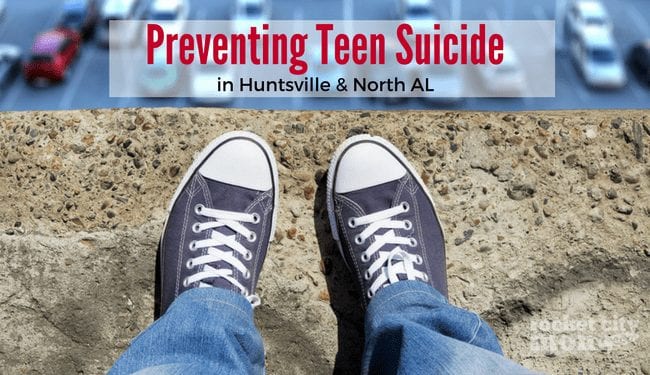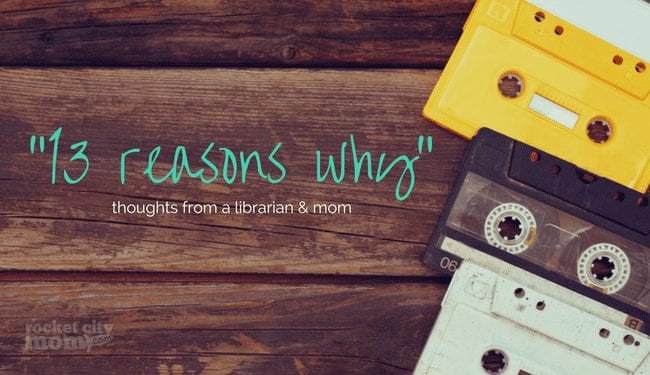Ask the Experts: Addressing Suicide with Children and Teens

Let’s just state the obvious: we are living in extraordinarily difficult times. Many of you may be wondering how best to support not only your own mental health, but that of your children right now, and that concern is valid. While I don’t have any secret tricks to magically make this easier, I can tell you that the first step is talking about it, including with your children.
Speaking with children and teens about suicide seems daunting, I know, but it is absolutely vital that we open up communication about this topic to the young people in our lives. Suicide is now the second leading cause of death for ages 15-24, and the third leading cause for ages 10-14.
Remember, studies show that talking or asking about suicide DOES NOT increase the risk of suicide. In reality, having this conversation opens up communication and tends to reduce anxiety around the topic.
So, where to begin? Here I’m going to lay out a few guidelines for how to engage your children in an age-appropriate way.
Addressing a possible suicidal crisis for your child:
First off, stay calm. I know this seems impossible, but it is important to be what we call a “non-anxious presence” for your child. They are already anxious and distressed, so we want to provide a peaceful environment for them to open up. Here are some guidelines to follow in case of a suicidal crisis:
- Stay calm.
- Listen. Carefully.
- Ask questions to understand.
- If you suspect they may be suicidal, ask them directly. “Have you been struggling with suicidal thoughts?” or something similar for older children. For younger, you may say something more like “Are you wishing you could disappear forever?” or similar.
- Be extremely clear with your child that you are there, that they are doing the right thing, and that you will be with them through all of it.
- Validate their feelings.
- Remove all possible means of suicide from your child’s vicinity. Make sure all firearms, pills, sharp objects, etc. are out of your child’s reach. If possible, get these potential means out of the house entirely.
- Build up a support network. Find out who your child is comfortable talking to and encourage them to reach out to people when needed.
- Communicate with the other adults (and perhaps even friends) in your child’s life. Suicidal warning signs can be spread out among various people, so communication is key in spotting signs that your child may be in danger.
- Get help. Nine out of ten people who die by suicide have a treatable mental health condition at the time of their death. If possible, seek professional help.
Addressing a suicide loss by age:
Preschool/Kindergarten: Stick to basics: “Uncle Joe was very sick and he didn’t get better. We are all very sad.”
Age 7-10 : Short, true answers: “Uncle Joe had an illness called depression. He died from his illness, but I wish he had been able to get more help.” Let their questions lead the discussion. There is no need to go into details that may disturb the child, such as means of suicide or details on the death.
Age 11-14: Be more concrete: “What did you hear about Uncle Joe? What do you know about suicide? What are your beliefs about it?” Meet them where they are and correct any misinformation they have about it. Again, there is no need to get into disturbing or upsetting details.
High School: Not if; when: “What will you do when you or your friends deal with mental health issues or suicidal thoughts?” Address them as adults. Be clear that you do not see mental health issues or getting help for them as a failure on your child’s part.
Find additional resources and examples for age appropriate talk here.
Warning signs of suicide:
Suicide has preceding warning signs about 80% of the time. These can include, but are not limited to, the following:
Emotional distress, isolation, lashing out, acting recklessly, giving away favorite possessions, talking or asking about death or the afterlife, sleeping more or less, falling behind in school, losing interest in things they enjoy, and several others.
If you see any of these warning signs in your child, it is time to ask the question and have the conversation; the sooner, the better.
I cannot tell you that this will be an easy task, but opening up that communication, correcting misinformation, and offering support can make all the difference in the youth suicide crisis we are facing.
If you or anyone you know is in distress or experiencing a crisis, please call Crisis Services of North Alabama’s 24/7 HELPline at 256-716-1000, or text our TextLine between 4:00 pm and 11:30 pm at 256-722-8219. We also offer support groups, domestic violence and sexual assault services, and many other resources.
 ABOUT THE AUTHOR: Melissa Knight is a native of North Alabama and has resided in Huntsville for four years. She is the Suicide Prevention Coordinator at Crisis Services of North Alabama, where she trains school faculties, students, and the community in general on suicide prevention. Melissa also works with the North Alabama Mental Health Coalition as a volunteer leader on suicide prevention in our county and surrounding areas. She is currently in the Rehabilitation Counseling Master’s program at The University of Alabama. Need a speaker for your school or civic group? Give Melissa a call.
ABOUT THE AUTHOR: Melissa Knight is a native of North Alabama and has resided in Huntsville for four years. She is the Suicide Prevention Coordinator at Crisis Services of North Alabama, where she trains school faculties, students, and the community in general on suicide prevention. Melissa also works with the North Alabama Mental Health Coalition as a volunteer leader on suicide prevention in our county and surrounding areas. She is currently in the Rehabilitation Counseling Master’s program at The University of Alabama. Need a speaker for your school or civic group? Give Melissa a call.
You Might Also Like…
As a hyper-local website focused on all aspects of parenting in and around Morgan County, and the Tennessee Valley, River City Mom occasionally asks local parents to submit their stories for publication. This is part of our continual effort to represent varied viewpoints and experiences on our site. However, these articles should not be seen as necessarily expressing the views of Rocket City Mom Media Group, LLC.







